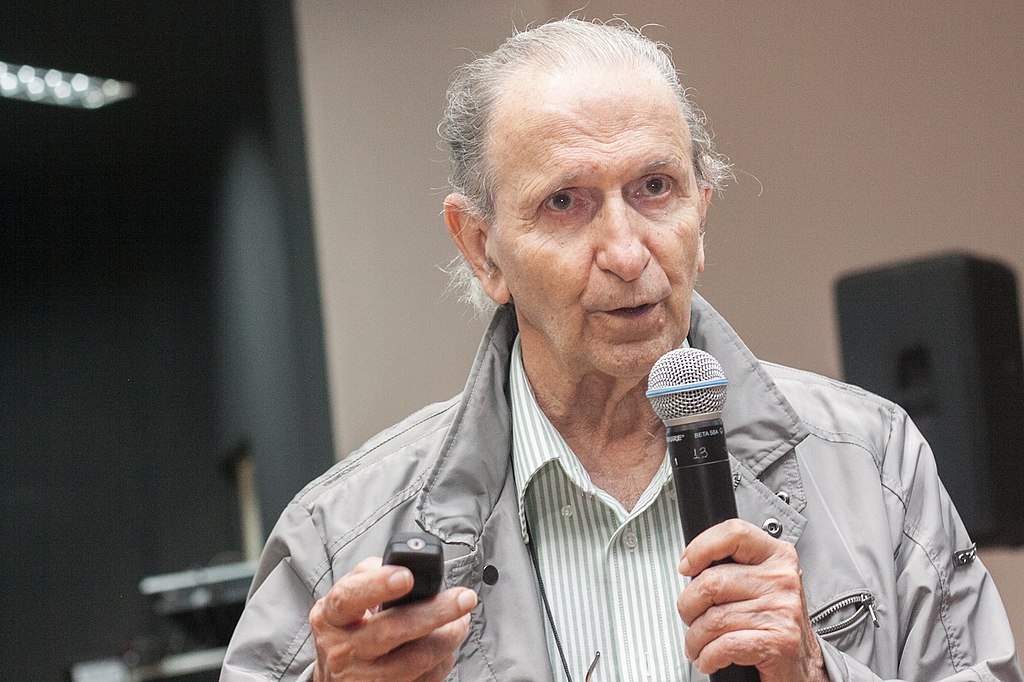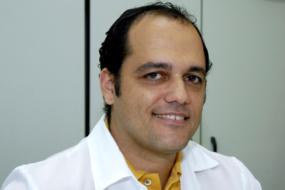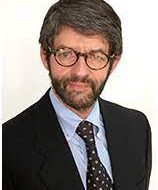
Known as the “master of scientists”, the researcher proposed to develop Brazil through education, science, technology and innovation

Born in Rio de Janeiro, Brazilian Sérgio Mascarenhas (05/02/1928 – 05/31/2021) graduated in Physics at the State University of Rio de Janeiro and in Chemistry at the University of Brazil (now the Federal University of Rio de Janeiro). Janeiro, UFRJ), between 1947 and 1951. He was a disciple of Anísio Teixeira, César Lattes, Álvaro Alberto, Bernhard Gross and Joaquim da Costa Ribeiro, with whom he worked actively in applied research on dielectric phenomena, the subject of his first publications.
Still young and newly installed in the chair of the Department of Physics at the São Carlos School of Engineering (EESC) at USP, in 1960 Mascarenhas left for a period of research in the United States, with a Fulbright Foundation scholarship, at the Carnegie Institute of Technology, in Pittsburgh. On a visit to Washington, Mascarenhas reached an agreement with the Fulbright Commission to grant annual scholarships to finance exchange visits between North American professors and members of the then nascent São Carlos solid state physics research group, in a program of three years old.
From São Carlos to the world
Many researchers came from Rio de Janeiro, some from São Paulo, others from abroad. With the scholarships obtained from the Fulbright Foundation, this group can work in advanced research programs in top US universities, with an intensity hitherto never seen in Brazil.
Sérgio has also been a visiting professor at several universities in the United States, Mexico, Japan and Italy. He is vice president of the Brazilian Society for the Advancement of Science (SBPC), in addition to being a member and director of several other associations, including the Brazilian Academy of Sciences (ABC) and the Academy of Sciences of the State of São Paulo.
Applied science
Always seeking to apply the most advanced physics to real and complex problems that limit the socioeconomic development of Brazil, Mascarenhas and its research and development teams created patented techniques, methods, processes and products, with current applications and today used daily by thousands of people.
As examples of applications, individual radiation dosimetry monitors can be cited in hospitals, clinics, industries, or patients with head trauma or hydrocephalus who now have their intracranial pressure monitored by a non-invasive sensor.
Ground technology
Also widely recognized is Mascarenhas’ contribution to the creation of Embrapa Instrumentação, in 1984, which today houses the Nanotechnology Laboratory for Agribusiness. He contributed with developed agricultural instrumentation technologies, which were at the origin of the creation of this Embrapa unit. Many of these innovations have already been transferred to the private sector and applied by agronomists, such as the use of computerized tomography in the examination of soil properties, including its water condition.
Radiations
Its technological contribution in the area of radiation dosimetry applied to the individual monitoring of occupationally exposed professionals translates today into the commercial success of the Sapra Landauer company, which was created from the knowledge accumulated from Mascarenhas’ research in this area and currently has its services used by more than 110 thousand users in more than 6 thousand institutions.
Dean
When the physician, industrialist and politician Ernesto Pereira Lopes wanted to create a federal university in São Carlos, bringing together several existing schools, he received a different idea from Mascarenhas: that of making a university from scratch, opening the doors to areas of little knowledge. explored by science in Brazil until then – such as solid state physics. Ernesto not only agreed but called him to be dean of that university, the Federal University of São Carlos (UFSCar) in 1968. In 1972, Mascarenhas created the first Materials Engineering in Latin America, at UFSCar.
brain4care
At other times, Professor Mascarenhas’ sense of opportunity manifested itself in an entrepreneurial way, as in the foundation of brain4care: “In 2005, he was diagnosed with the disease of normal pressure hydrocephalus (HPN). Outraged by medicine’s invasive methods of treatment – the patient’s skull had to be drilled to measure intracranial pressure – he decided to research new ways of taking this measurement, which resulted in a new non-invasive method. This project, which revolutionized the treatment of hydrocephalus, brain tumors and head trauma, was developed in conjunction with FAPESP and the World Health Organization, at USP’s School of Medicine in Ribeirão Preto”.
Extremely promising and with huge market potential, brain4care has already attracted more than US$ 5 million in investments and was recently selected and awarded by Singularity University, in Silicon Valley, among 500 competing projects, having also attracted the interest of specialists dedicated to the combating the Covid-19 pandemic, by NASA, and by Brazilian medical leaders.
Relevance and repercussion
Among the criteria that led to the Singularity University award is the fact that brain4care’s technology could impact up to 1 billion people (according to Singularity University estimates) through a low-cost, high-availability model. The company has already obtained two patents and also authorizations from the National Health Surveillance Agency (Anvisa), in Brazil, and from the Food and Drug Administration (FDA), in the United States, to distribute its technology to hospitals and clinics in their respective territories. The company already has a branch in the United States, with commercial launch expected in the North American market in 2022.
The non-invasive intracranial pressure monitoring system is already in clinical use in hospitals across the country, including Albert Einstein, Sírio-Libanês and Beneficência Portuguesa in São Paulo, the Pequeno Príncipe Hospital complex in Curitiba, and for research purposes in leading entities abroad, such as the Cleveland Clinic and the Johns Hopkins University Medical Center in the United States, in a list that grows every day.
Sergio Mascarenhas died at the age of 93, of cardiorespiratory arrest.





